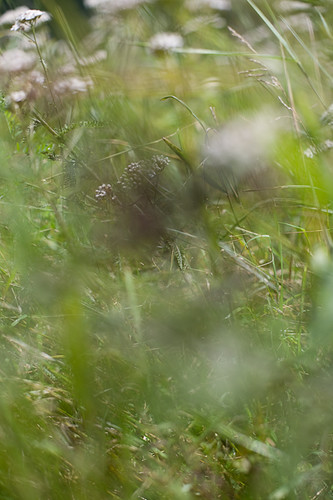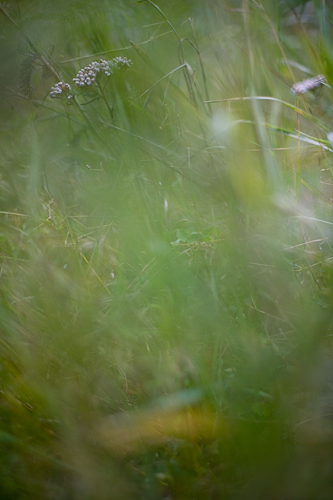Breathing through the crisis
The new term has begun and we're deep into the third week of classes at both NYU and the International Center for Photography. As usual I'm dwelling on questions of learning and teaching. How do I help you become more of the photographer you already are? This is the question that keeps me up at night, that's for sure.

One of the unspoken assumptions of photography is that the world is photographable. We start from here and move forward, as if making pictures in this way was not only desirable—our goal—but also doable. I'm not so sure anymore. It might be that we have to investigate this underlying assumption.
What do we do when we make pictures with photography? What do we say about ourselves? About our world? About what we know, or want to know? What does the act of pointing a camera say about what we love, and what we want to forget?
A student wrote to me in crisis: the computer, the arbitrary materiality of the apparatus, was confounding her, making her doubt her abilities to make pictures, to see. She longs for the flat reality of paper and film, the wet coolness of the chemistry, and for the sound of the water in the sink.
I don't think the word photography should be linked any longer to a particular technology or process. As a term it was coined when the initial chemical processes were already passing into history; and since then it has been unhesitatingly pushed forward through the decades, from tech advance to tech advance, without much thought as to what it meant, or was meant to describe. But today, suddenly, we have a crisis; the tools have changed to the point, finally, where everyone is now focusing on the word itself.
Post-photography, photography reborn, photography after photography, the reconfigured eye, and so on. I think it's a distraction. I doubt that Daguerre or Fox Talbot or Bayard or any of the other nearly simultaneous "inventors" of what became photography would have recognized it as practiced in the early twentieth century, much less 50 years later when any of us developed our first roll of film. My point is that photography has been changing all along, that there never has been a stable practice called photography, at least not at the technical level. My larger point is that we should have been paying attention before now. The gap between what we've been doing, and what we've been saying about what we've been doing, has been widening for a long time; it's not a new problem. If it feels more acute to you now, suddenly, it's probably because you're fixating on the apparatus, the buttons, instead of on the purpose and the practice.
Nevertheless, if you feel the crisis stoked in yourself, get a head-start on it by reading some Barthes, Sontag and Berger, then dive into some Benjamin (if you're feeling brave), and perhaps pick up Jonathan Lipkin's 2005 Photography Reborn (especially for the final chapter, a favorite of mine). These essays will connect you to the wider discussion that's always been part of the cultural wave that we call photography. It used to be that only art and photography students would dip into these texts, but today I think they have something to say to everyone engaged with photography (and that's pretty much everyone, isn't it?).
For me, photography is an action, a performance, a connection, the hope of a connection. It's a reaching out, sometimes a reaching in. A touch. A question. I'm struggling to find a way to get you past the barrier of the technology so you can engage more fully in the widening conversation.
Can you picture that?

These pictures are part of a new series. I'm thinking about what can be pictured and what cannot be known. I am lying on the land, breathing.

One of the unspoken assumptions of photography is that the world is photographable. We start from here and move forward, as if making pictures in this way was not only desirable—our goal—but also doable. I'm not so sure anymore. It might be that we have to investigate this underlying assumption.
What do we do when we make pictures with photography? What do we say about ourselves? About our world? About what we know, or want to know? What does the act of pointing a camera say about what we love, and what we want to forget?
A student wrote to me in crisis: the computer, the arbitrary materiality of the apparatus, was confounding her, making her doubt her abilities to make pictures, to see. She longs for the flat reality of paper and film, the wet coolness of the chemistry, and for the sound of the water in the sink.
I don't think the word photography should be linked any longer to a particular technology or process. As a term it was coined when the initial chemical processes were already passing into history; and since then it has been unhesitatingly pushed forward through the decades, from tech advance to tech advance, without much thought as to what it meant, or was meant to describe. But today, suddenly, we have a crisis; the tools have changed to the point, finally, where everyone is now focusing on the word itself.
Post-photography, photography reborn, photography after photography, the reconfigured eye, and so on. I think it's a distraction. I doubt that Daguerre or Fox Talbot or Bayard or any of the other nearly simultaneous "inventors" of what became photography would have recognized it as practiced in the early twentieth century, much less 50 years later when any of us developed our first roll of film. My point is that photography has been changing all along, that there never has been a stable practice called photography, at least not at the technical level. My larger point is that we should have been paying attention before now. The gap between what we've been doing, and what we've been saying about what we've been doing, has been widening for a long time; it's not a new problem. If it feels more acute to you now, suddenly, it's probably because you're fixating on the apparatus, the buttons, instead of on the purpose and the practice.
Nevertheless, if you feel the crisis stoked in yourself, get a head-start on it by reading some Barthes, Sontag and Berger, then dive into some Benjamin (if you're feeling brave), and perhaps pick up Jonathan Lipkin's 2005 Photography Reborn (especially for the final chapter, a favorite of mine). These essays will connect you to the wider discussion that's always been part of the cultural wave that we call photography. It used to be that only art and photography students would dip into these texts, but today I think they have something to say to everyone engaged with photography (and that's pretty much everyone, isn't it?).
For me, photography is an action, a performance, a connection, the hope of a connection. It's a reaching out, sometimes a reaching in. A touch. A question. I'm struggling to find a way to get you past the barrier of the technology so you can engage more fully in the widening conversation.
Can you picture that?

These pictures are part of a new series. I'm thinking about what can be pictured and what cannot be known. I am lying on the land, breathing.
Comments